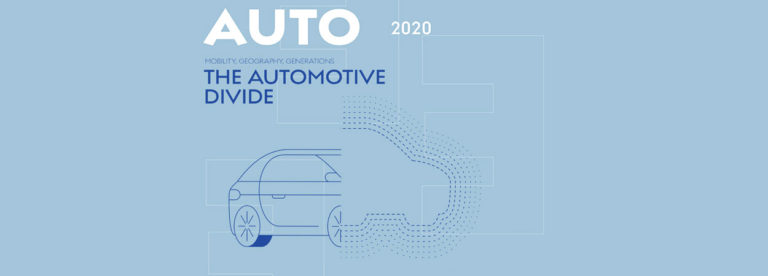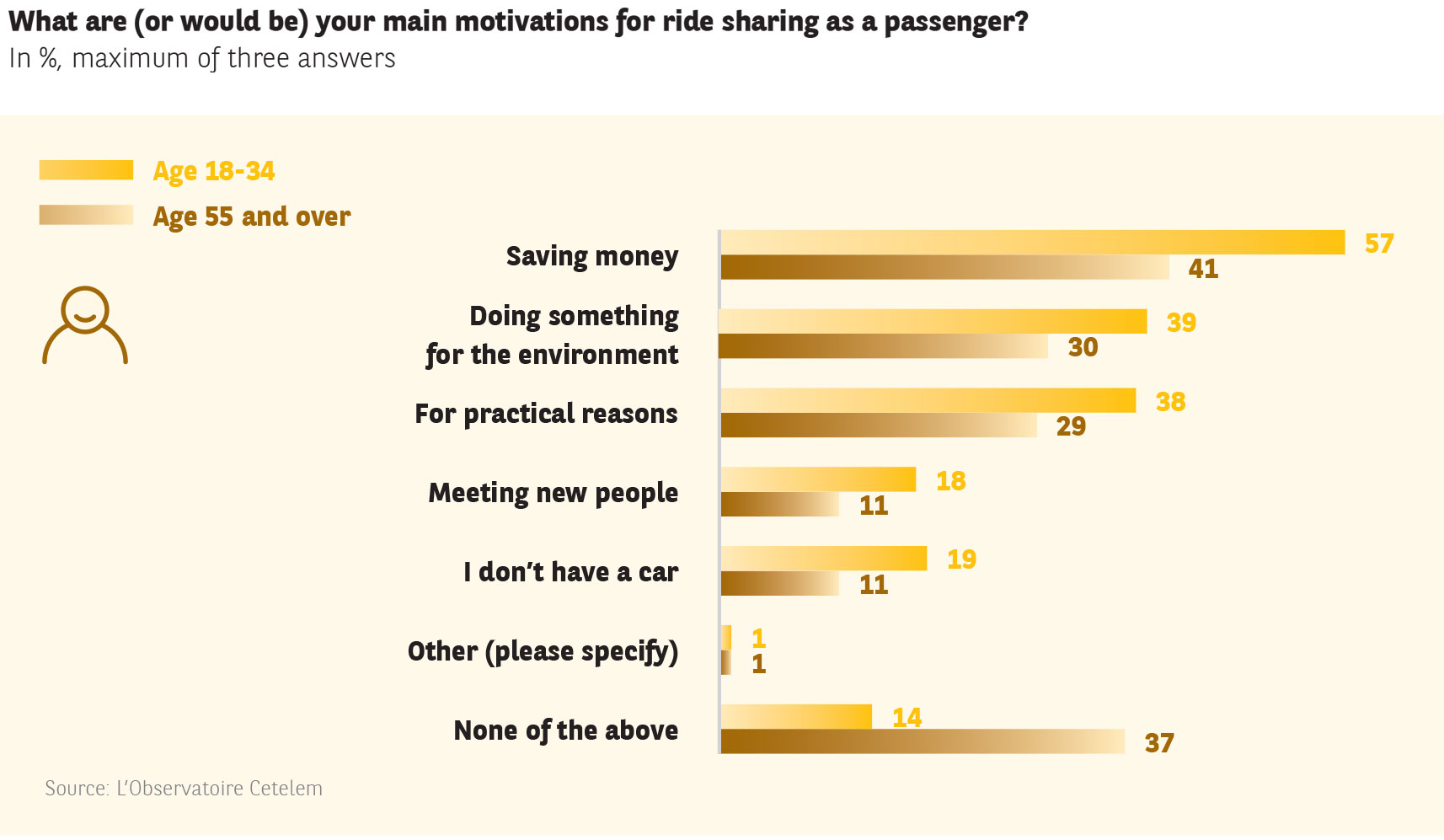Ride sharing: a financial imperative


AN AFFORDABLE OPTION, ESPECIALLY IN EMERGING COUNTRIES
People often use ride sharing for financial reasons, whether as a passenger or a driver (Fig. 26 and 27).
51% of the former do so to save money, while 44% of the latter do so for that reason. Environmental concerns come second (35% and 38%).
South Africa, Turkey and Brazil have the highest proportions of drivers who partake in ride sharing for economic reasons. Conversely, the Germans and especially the Japanese tend not to be preoccupied by the thought.
The French post a close-to-average score.
FIG. 26 et 27 :
FOR MILLENNIALS, EARNING MONEY IS THE PRIORITY
The generational divide is just as significant here.
Millennials are much more likely than their elders to consider ride sharing to earn money. Even more striking is the fact that seniors are more mindful of environmental aspects. However, the social aspects of ride sharing are also cited by a large proportion of millennials, be they passengers or drivers. However, the difference between urbanites and country dwellers is not huge.
Their reasons for ride sharing are almost identical, with a priority placed on financial concerns (Fig. 28).
FIG. 28 :


